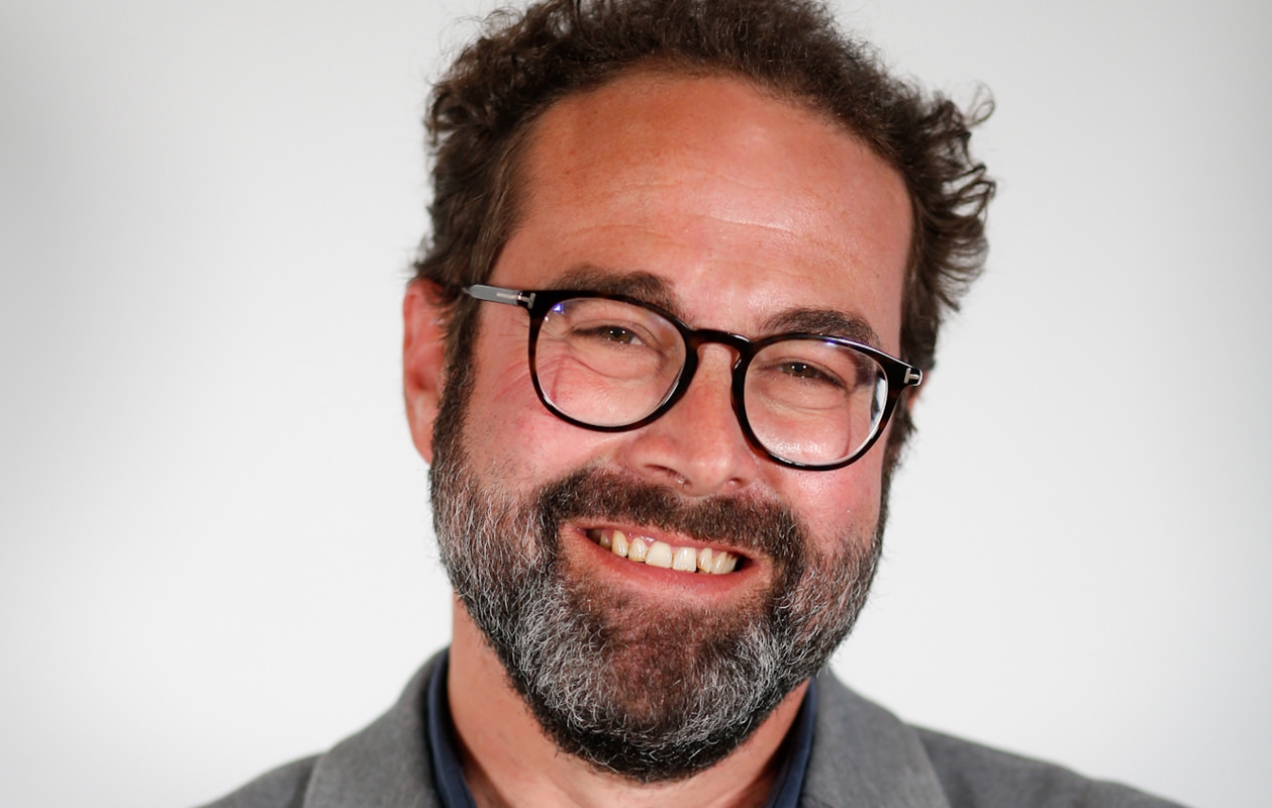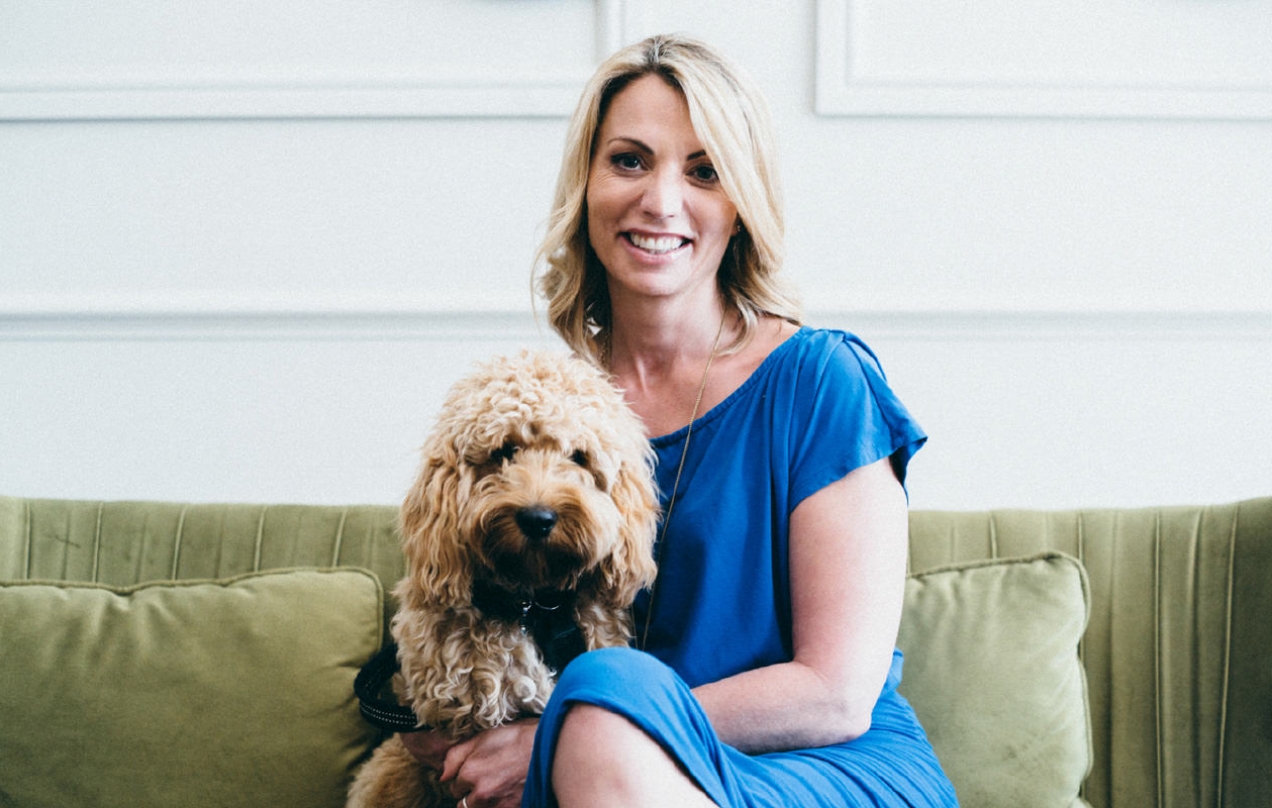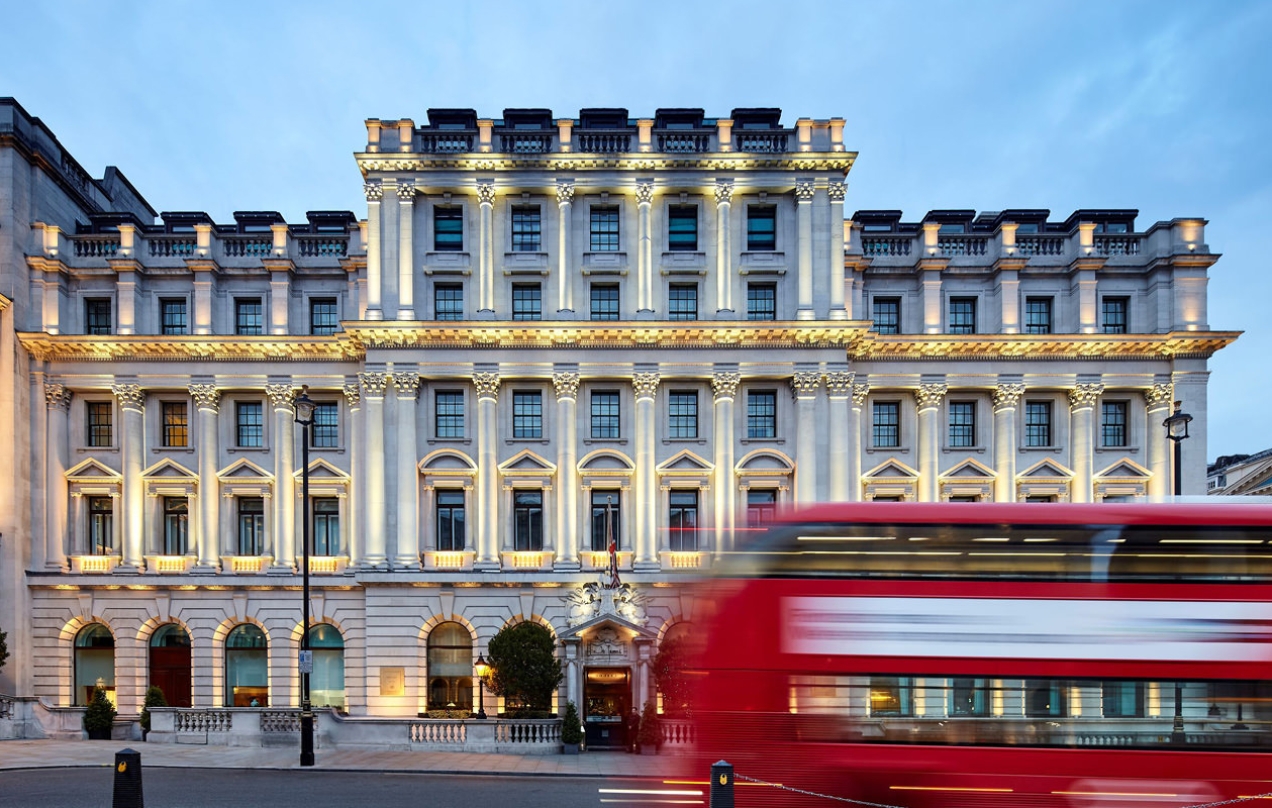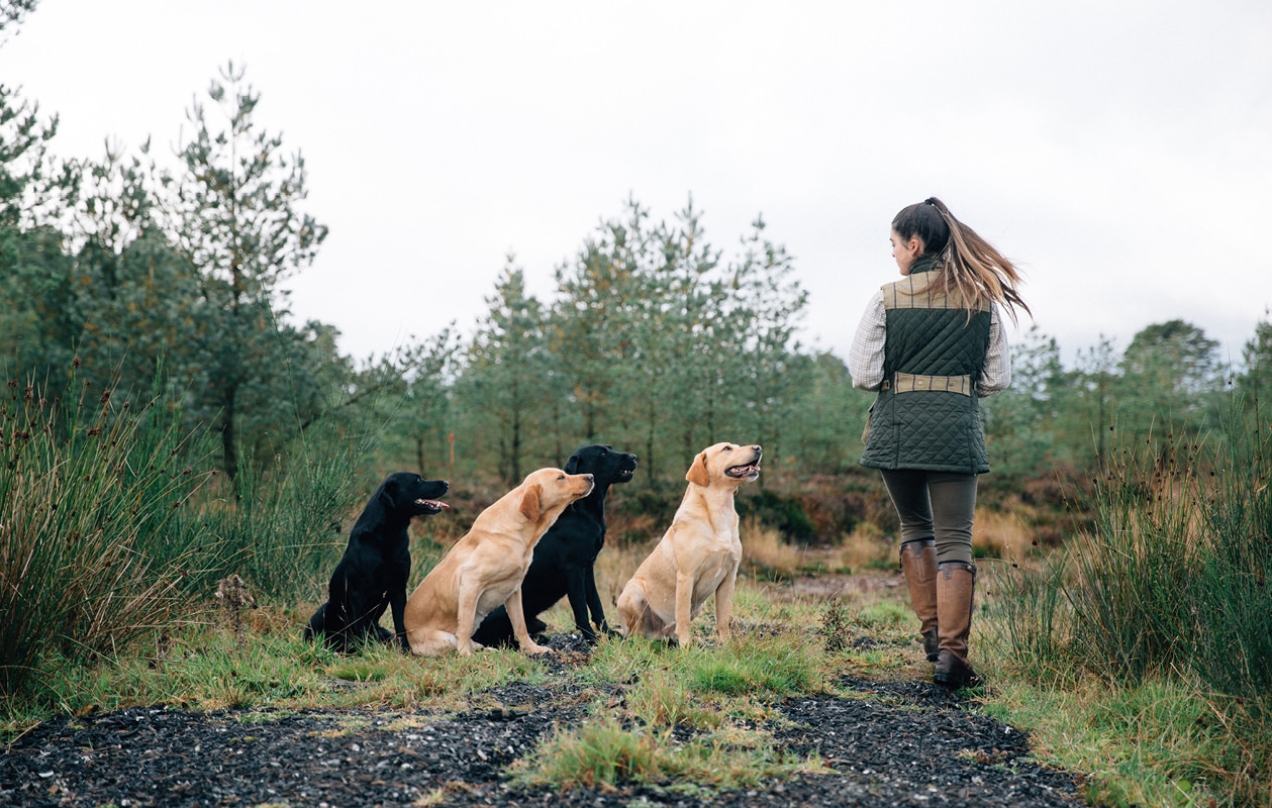Heartbreak Hotels: Why PR is Central to Hospitality’s Revival
Brexit, Covid, rising inflation, soaring energy bills and the tyranny of Tripadvisor are all conspiring to create an unholy mess for the UK's £130bn hospitality industry. Here experts tell Christian Koch why PR is crucial for the sector's turnaround.
‘You just can't get the staff these days.' It's a grumble many working in PR might have heard this year thanks to the ongoing talent crisis.
But speak to anybody working in pubs, restaurants or hotels and they'll speak of a very different recruitment problem. It's why major hotel chain Accor (owners of Sofitel, Mercure and Novotel) deliberately sold fewer rooms for a short time, despite a pent-up pandemic demand for travel that turned airports into people-clogged hellscapes this summer and caused months-long backlogs for passport renewals.
As Antoine Dubois, Accor's senior vice-president of marketing and guest experience told the Cannes Lions festival in June, the power of the Tripadvisor and online review could be to blame. What did Accor do to attract this internet ire? Most probably nothing, other than not having enough staff to deliver the service guests are used to.

Antoine Dubois
"Earlier this year, there were occasions when we had hotels with, say, 100 rooms, selling just 70-80 rooms in order to deliver the right experience. High occupancy and reduced staff can lead to negative reviews so it's important that businesses adapt and ensure the right balance. We saw this happening so we had to react.
"People know there's a global staffing shortage across lots of sectors, hospitality included," Dubois continues. "So if the experience isn't what they expect, people notice it for sure. By reducing occupancy, we were able to improve the guest experience and, crucially, give staff the space to recalibrate."
It isn't just staffing shortages afflicting hospitality: there's also the damage caused by two years of lockdown shutdowns, furloughed staff and supply chain issues - not to mention rising inflation and rocketing energy bills.
While this is proving to be a potentially fatal mix for their balance sheets, at the same time, companies are also dealing with vexed customers, whether it's somebody moaning about lack of maid service on Google Reviews, or James Corden telling staff they can't do their job in New York's Balthazar restaurant because they made an egg-yolk omelette with flecks of egg-white in it. Time for PR to come to the rescue…
"During the pandemic, the biggest concern [for hospitality] was that they'd reopen their doors and nobody would come," says Misty Belles, Vice President, Global Public Relations at luxury travel network Virtuoso. "Flash-forward two years and everybody's returning, but they're struggling to maintain their reputation in the face of a cost of living crisis and staffing problems."
"From a reputational point of view, this can't be happening," says Lysbeth Fox, founder and CEO of luxury travel and lifestyle PR company, Fox Communications, which has Ritz-Carltons, Raffles and Nobu Hotels galore on its client roster. "It's up to us as PRs to help our clients navigate this area."

Lysbeth Fox and dog Cookie
"Covid, the recovery surge, levelling out, cost of living, the great resignation, energy crisis, continued pressures - none of this is unique to us - this is not a hospitality landscape, this is post-Covid landscape," says Sarah Wilson, VP PR & Media Relations at Accor in Northern Europe. "We have to alter the narrative. A guest is predisposed to a certain experience because of the story they hear - that's marketing. Today, the story customers hear is staffing crisis and global challenges so that's what they expect from their experience. We have to change the story."
TALENT GAP
To tackle the bad reviews, hotels may need to confront their staffing issues first. In the UK, Brexit is causing the biggest payroll headache for the £130bn hospitality sector. Before the pandemic, 75% of hospitality workers in London were estimated to be from the EU (nationwide, the figure was around 30%). Many of these workers left during the first national lockdown in March 2020, subsequently deciding to sit out the pandemic in their home countries. By 2021, they might have been pondering a return, but the UK, which had recently exited the EU and introduced new immigration rules, was a different place. Now, they needed to apply for a Skilled Worker visa for which they'd need to be paid a salary of £25,600 or appear on a list of "eligible occupations" to qualify. Unfortunately, most hospitality jobs - bar staff, waiters, spa therapists - weren't on this list.
"This challenge around working visas is causing irrevocable damage," says Helen Brocklebank, chief executive of Walpole, the trade body for the UK luxury sector. "Not only is it negatively impacting the UK's reputation with overseas guests, but it's preventing the hospitality industry offering an elite and bespoke service to visitors who expect high standards of service."
In September, the UK Government responded to a petition calling for EU nationals to come to the UK to work in hospitality for up to two years. The Government responded confirming there was ‘no plan to introduce a visa route for recruitment at or near the minimum wage with relatively short training. Businesses should invest in and develop the UK's domestic labour force.'
In 2022 job vacancies in hospitality were at the highest on record and, although they eased a little at the end of the year, still one in nine positions vacant according to November's Business Confidence Report. Experienced staff are either hard-to-find or demanding higher salaries. Absorbing these costs has been difficult: nearly two-thirds (64%) of the UK's top 100 restaurant are now making a loss, according to UHY Hacker Young, with insolvencies up 64% in the 12 months to May 2022. Big names aren't immune: in January, Corbin & King (owners of London PR haunts the Wolseley and Brasserie Zédel) went into administration.
Even in those venues not experiencing staff shortages, soaring inflation means the price of everything from buying bread for the restaurant to the cost of toilet roll is becoming prohibitively expensive. "Have you noticed lower-quality earbuds or lotions in hotel bathrooms?" says Belles. "This crisis isn't strictly about staffing, it's manifesting in other ways too."
It's clear pared-down menus and loo-roll-free bathrooms are rankling some pernickety customers, who are venting their wrath via online reviews. "The consumer is your mouthpiece now," says Fox. "Once upon a time, you could get away with a customer complaint because that person would tell five friends and that'd be it. Now, this one person will tell 5,000 people online."
"It's about being better storytellers in other areas - and this is where comms people can be vitally important." Misty Belles

Misty Belles
In the face of such vitriolic reviews, hoteliers can feel powerless. The standard response, says Dubois, is to "provide an answer to every review, good or bad. We want guests to feel heard. And, good or bad, the review if crucial feedback for hotel operations to act on."
With her PR lens on, Fox says adopting a bolder tone might work. She notes Keith McNally, the owner of the Balthazar eatery which played host to Corden's contretemps, didn't give into the US talk show host, but instead banned him temporarily from the restaurant. McNally's Instagram tirade called Corden "a tiny cretin of a man" and "the most abusive customer to my Balthazar servers since the restaurant opened 25 years ago".
"McNally said it's not acceptable to have a tantrum and speak to staff like that," says Fox. "His response was honest, transparent and humble. He was standing up for his staff and his values." The upshot? The public sided with McNally - all good, free PR for his restaurant.
To break away from the stranglehold of online reviews, Belles notes PR is more important than ever. "It's about being better storytellers in other areas - and this is where comms people can be vitally important."
One such story is sustainability. "Sustainability impacts everything today: consumer and corporate choice; reputation; employee acquisition, engagement and retention; experiences; behaviour; community engagement; design and innovation; F&B, and, ultimately, the long-term sustainability of our business," explains Wilson. "Above all, it is our corporate responsibility to act positively."
"Sustainability is a huge part of hospitality right now," adds Belles. "Telling the story about what the hotel is doing to care for local residents or green initiatives can all feed into the guest experience."
For PRs, placing sustainability-led stories can be tough, but Fox gives the example of the Maldives' Six Senses hotel which has partnered with a local charity to help turtle-hatching. As you can imagine, cute turtle videos have done amazingly well on social media. "If ESG is front-and-centre of the PR story, then stories will come out of that," says Fox.
"In March 2021, Accor was the first major international hotel group to set long-term science-based targets to reduce its carbon emissions in line with the 1.5°C ambition of the Paris Agreement," says Wilson. "At COP26 Accor signed the Glasgow Declaration and pledged to achieve net zero emissions by 2050, and later that month, Accor and 13 other members of the Sustainable Hospitality Alliance, announced a new Pathway to Net Positive Hospitality, an initiative backed by the WTTC. Change is being tackled at scale and on property."

Sofitel London St James
Other messages PRs may wish to focus on could include comfort, wellness propositions, catering for the growing army of remote-workers, or new food trends. Belles recommends chatting to the hospitality brand about trends they're observing in their data. "Hotels/restaurants might be seeing a trend for a particular dish on the menu or cuisine, for example. Keeping an eye on what the customer is requesting can be used as a foundation for a story."
Mindful Travel has also been a major trend in 2022. The emotional and experiential role of travel has more prominence now than ever before. The Accor Northern Europe Trends Report stated that 66% of those polled in are prioritising travel that ‘boosts my mental wellbeing and leaving my stresses behind'. Wilson added: "After two years of restrictions, the old adage of ‘a change is as good as a rest' has never been truer. According to Accor research, 67% agree that "'being somewhere different enables me to clear my head and restore some order in my life'. Mindful and impact travel are trends that are here to stay."
Belles also suggests tapping into the "human, emotive element to storytelling" which can whet potential customers' appetite for travel or visiting the restaurant. "What hits you on the senses when you walk into the hotel room? What are they going to see? What does it smell like? It creates a setting so people can imagine themselves in that site [hotel/restaurant]."
"Communication is a strategic business function which drives purpose, understanding, consideration and engagement across all stakeholder audiences." Sarah Wilson.

Sarah Wilson
Brand positioning isn't the only way PRs can help hospitality brands: there's crisis comms too.
"Currently PRs don't have a role on the board, but after the pandemic and current social issues, I think it's imperative," she continues. "Today, when something happens it'll be tweeted, Instagrammed or TikTok-ed and the situation will be blown up before you know it. Just look at James Corden, some corporate responses to Black Lives Matter, or when American Airlines dragged a passenger from a flight… We can advise them on public statements, plus what they stand for and how that should be communicated."
"We need to be advising our hospitality CEOs/CMOs on their workforce training, ESG offering, DE&I policy (is putting male/female slippers in a hotel room appropriate for single parents or gay couples?) and how they can employ local people and give back to the local community," she adds. "PRs are no longer ‘yes-merchants' kow-towing to press or their clients. Because the reaction to social media is immediate, people listen to us now."
"Communication is a strategic business function which drives purpose, understanding, consideration and engagement across all stakeholder audiences. It is creative and solution minded and more critical than ever," adds Wilson.
GOOD HOUSEKEEPING
However, before any PR campaign, the first thing PR brands should do is spring-clean their own website and social feeds.
"[In hospitality] PR starts with your own channels," says Belles. "But unfortunately, digital is an area where many hotels and other hospitality brands are lagging." Indeed, hospitality is the third least digitised sector in the world according to McKinsey, only faring better than construction and agriculture and hunting. In the same way staffing shortages are causing disgruntled customers, a badly designed website with slow-load times, non-integrated booking systems, annoying autoplay music and clunky spa PDFs can cause untold damage to a brand.
Wilson says hospitality is catching up. This ranges from a more intelligent use to guest data to personalise experiences that surprise and delight, to the use of guest mobile technology to rollout digital room keys.
However, because hospitality brands are busy, they often lack the digital smarts of other industries. Fox says PRs can help with SEO ("Our press releases - shock horror, we still use them! - are all beautifully-written with SEO so hotels can use them verbatim online") or simply advise them of the need to include people with colour, LGBTQ+ couples and disabled holidaymakers in their website shots/assets.
Shooting new imagery can be costly, but Dubois says Accor has a synergetic relationship with carefully selected micro-influencers who are used "to influence but also generate content which is used in the hotel's marketing. It has the added benefit of making the images guests see more authentic to their everyday social media feeds and therefore more appealing".
"We've had a lot of success working with affiliate content creators or ‘affluencers' who shoot some beautiful footage and content," says Fox. "Because they know how to shoot a reel or a grid post, they can get some really great content which is of a real benefit to our brands."
And social media works well for hotels and restaurants, especially TikTok and Instagram. London's Nusr-Et Steakhouse is one of hospitality's few success stories in 2022, reporting £7m in sales for its first three months. Much of its publicity has come from owner Nusret Gökçe (aka Salt Bae) and his fancy steak-salting technique becoming a viral meme (Salt Bae has 49 million Instagram followers).
When placing their hospitality clients, it makes sense for PRs to think beyond the travel pages, says Fox. "Brand partnerships work really well, such as linking a hotel with a fashion brand - just look at the [leisurewear brand] Frame X Ritz collaboration. It's a great way to cross-share audiences, data outreach, e-shots, plus marketing to each other's databases and audiences."
Novelty also works well: in recent years hotels have garnered press due to employing a ‘genealogy butler' who can research your family tree (The Shelbourne, Dublin), a ‘meteorologist-in-residence' (Marriott Hotel County Hall, London) or taking the hotel's cute Labrador for a walk (Gleneagles, Scotland). One of Fox's clients, the Cadogan, offered a ‘sleep concierge' to help insomniac guests, and Novotel has a global partnership with Calm with dedicated Sleep Stories available for guests.

Gleneagles Gundogs Training
Many hoteliers and restaurant-owners working in the UK's crisis-hit hospitality sector may feel PR is anathema when they have acute cashflow issues to deal with. Indeed, according to travel media website Skift, 90 per cent of travel companies slashed their marketing budgets during the pandemic.
"This is perhaps the worst time not to be investing in PR," says Fox. "There's a lot of noise out there - next year lots of people will be travelling despite the recession," she says. "These people will have saved during the pandemic, and going for longer stays, spending more money or even upgrading. If you're not on that radar, you won't get a slice of that cake. Now's the time to bite the bullet and invest in the future by developing some great PR stories…"
For courses on everything from how to be a strategic leader to planning your ESG comms, go to https://www.cipr.co.uk/CIPR/Learn_and_develop/Training/All_Courses
.jpg&w=728&h=90&maxW=&maxH=&zc=1)

